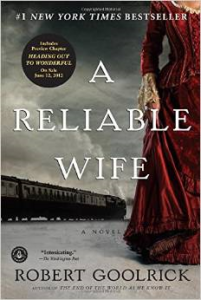3/10/2015—THE POWER OF THE CHARACTERS WE HATE
3/10/2015—THE POWER OF THE CHARACTERS WE HATE
Amy Dunne is one of the most despicable and yet well-known fictional characters today. Gone Girl, the novel that introduced Amy to the world, sold more than 2,000,000 print and digital copies in its first year of publication. Since its release in October 2014, the film version of the novel has grossed around $370,000,000 worldwide. People want to know about Amy—not because they like her but because they can’t stop watching her.
characters today. Gone Girl, the novel that introduced Amy to the world, sold more than 2,000,000 print and digital copies in its first year of publication. Since its release in October 2014, the film version of the novel has grossed around $370,000,000 worldwide. People want to know about Amy—not because they like her but because they can’t stop watching her.
Like most unlikeable characters, Amy can’t help creating conflict, which is the heart of any good story. Unlikeable characters hook their readers because they cause their own consequences. Circumstances aren’t thrust on them. Whether their actions are immoral, illegal, insensitive, or just cruel, they are responsible for the problems they generate, and an active character is always more compelling than an inactive one.
 In one of my favorite novels, A Reliable Wife by Robert Goolrick, a character named Ralph Truitt advertises in a Chicago newspaper for a wife to come live with him in Wisconsin in 1907. Poor Ralph has lost his first wife to a lover, but he kept the couple’s child and raised the boy as his own son, along with his daughter, who is mentally disabled. Ralph is a good guy. Catherine Land answers his ad and travels to Wisconsin, not because she’s the “simple, honest woman” she says she is, but because she knows Ralph’s history and she has a plan for him. Her plan is dastardly, to say the least, and she carries it out with cunning and stealth. She’s fascinating in her calculated evil, much more so than Ralph, who seems to accept whatever happens to him. If Catherine were like Ralph, what a dull story theirs would be.
In one of my favorite novels, A Reliable Wife by Robert Goolrick, a character named Ralph Truitt advertises in a Chicago newspaper for a wife to come live with him in Wisconsin in 1907. Poor Ralph has lost his first wife to a lover, but he kept the couple’s child and raised the boy as his own son, along with his daughter, who is mentally disabled. Ralph is a good guy. Catherine Land answers his ad and travels to Wisconsin, not because she’s the “simple, honest woman” she says she is, but because she knows Ralph’s history and she has a plan for him. Her plan is dastardly, to say the least, and she carries it out with cunning and stealth. She’s fascinating in her calculated evil, much more so than Ralph, who seems to accept whatever happens to him. If Catherine were like Ralph, what a dull story theirs would be.
Even authors are sometimes surprised by the passion their unlikeable characters generate. Kathleen McCleary, author of novels House and Home, A Simple Thing, and Leaving Haven, noted on “Writer Unboxed” that some of her readers developed an online forum devoted to discussing how much they disliked a character in one of her books. She admitted being a little dismayed by the forum until a writing colleague told her, “I wish people cared about my characters that much.”
Readers care about unlikeable characters because they demand attention. And what makes them even more compelling is being sympathetic at the same time. These are the characters who act like typical human beings most of the time until some heinous happening or circumstance pushes them into behaving in ways they never thought they could.
In his blog, “Podunk Pundit,” Hayden Keith Monroe recently described the main character of Edith Wharton’s The Custom of the Country as the novel’s heroine, “if that’s the right word for so calculating, inexorable and rapacious a social climber as Undine Spragg.” Monroe says Spragg is an ambitious woman who, having no other means available to her in the early twentieth century, climbs the latter to wealth and power by freeing herself from husbands and children to move on to the next more desirable husband. “We may deplore Undine Spragg,” Monroe says, “but are secretly compelled to root for her.” I understand. As a woman, Undine has few options for advancing herself in the world, so she does what she has to do to get ahead.
Scarlett O’Hara in Gone With the Wind is similar in some ways. Determined not to lose the family plantation for unpaid taxes after the Civil War, she marries her sister’s long-time suitor because he has money. She’s willing to lie, cheat, or steal to save Tara. Her methods are deplorable, but I have to admire her courage and tenacity.
Lisbeth Salander, the soul of The Girl With the Dragon Tattoo, whom Sonia Linebaugh talked about in a post here last month, is one of these strong characters. And who’s more interesting in Kathryn Stockett’s The Help—Aibileen or Minny? I’ll take Minny any day. She’s a hard-working, long-suffering woman who finally doles out justice in a chocolate pie.
Claire Massud, author of The Woman Upstairs and five other novels, best described the role and importance of unlikeable characters in an interview a few years ago. When the interviewer said she wouldn’t want to be friends with one of Massud’s characters, the author replied, “If you’re reading to find friends, you’re in deep trouble. We read to find life, in all its possibilities. The relevant question isn’t ‘is this a potential friend for me?’ but ‘is this character alive?’”
Which unlikeable characters are most alive for you?
Sally Whitney
Sally Whitney is the author of When Enemies Offend Thee and Surface and Shadow, available now from Pen-L Publishing, Amazon.com, and Barnesandnoble.com. When Enemies Offend Thee follows a sexual-assault victim who vows to get even on her own when her lack of evidence prevents police from charging the man who attacked her. Surface and Shadow is the story of a woman who risks her marriage and her husband’s career to find out what really happened in a wealthy man’s suspicious death.
Sally’s short stories have appeared in magazines and anthologies, including Best Short Stories from The Saturday Evening Post Great American Fiction Contest 2017, Main Street Rag, Kansas City Voices, Uncertain Promise, Voices from the Porch, New Lines from the Old Line State: An Anthology of Maryland Writers and Grow Old Along With Me—The Best Is Yet to Be, among others. The audio version of Grow Old Along With Me was a Grammy Award finalist in the Spoken Word or Nonmusical Album category. Sally’s stories have also been recognized as a finalist in The Ledge Fiction Competition and semi-finalists in the Syndicated Fiction Project and the Salem College National Literary Awards competition.
- Web |
- More Posts(67)